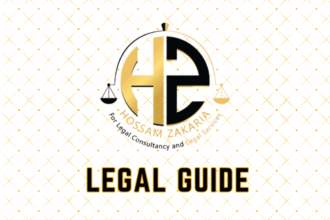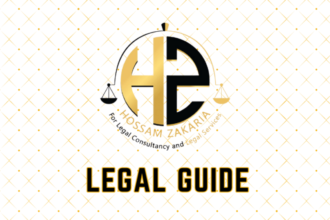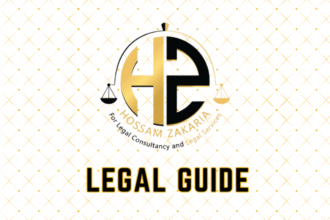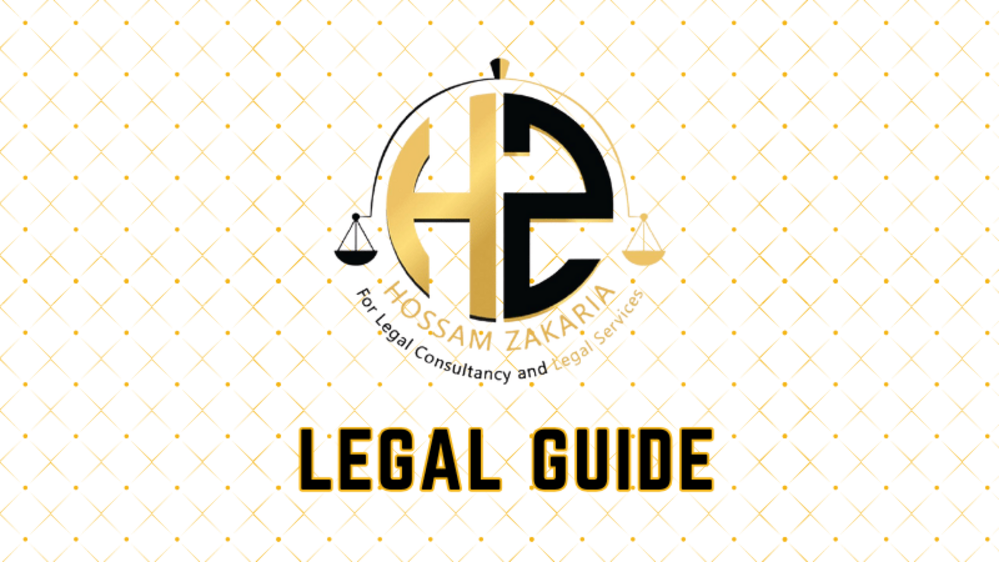Introduction: Regulatory Oversight of Air Carriers under GACA in the UAE
As the aviation sector continues to underpin the UAE’s status as a global commercial and logistical hub, regulatory oversight is both a safeguard and an enabler of sustainable growth. Governmental attention to compliance standards, especially with recent legal reforms and evolving international obligations, is placing new demands on airlines, corporate counsel, and business executives. The General Civil Aviation Authority (GACA) stands at the centre of this transformation, ensuring that all air carriers – whether UAE-based or operating in its airspace – conform with a complex framework of federal decrees, cabinet resolutions, and international best practices.
This article delivers an authoritative analysis tailored for legal practitioners, business leaders, and compliance officers. We examine the legal foundations of GACA oversight, detail the provisions influencing air carrier operations, and offer strategic recommendations to navigate current and upcoming UAE legal requirements. Given recent amendments, such as Federal Law No. 20 of 2022 on Civil Aviation and subsequent implementing regulations, staying informed and proactive is more critical than ever. Read on for deep, practical insights that could shape your compliance roadmap for 2025 and beyond.
Table of Contents
- Understanding the UAE Civil Aviation Regulatory Framework
- GACA’s Role and Jurisdiction in Air Carrier Oversight
- Key Provisions Governing Air Carrier Compliance
- Comparison of Past and Present Legislation
- Practical Application: Compliance Strategies and Best Practices
- Risks and Consequences of Non-Compliance
- Case Studies: Lessons from Real and Hypothetical Scenarios
- Conclusion and Forward Look: Shaping a Compliant Aviation Future
Understanding the UAE Civil Aviation Regulatory Framework
The Legal Landscape
The UAE’s aviation regulatory regime derives its authority from a suite of national and international instruments, primarily codified in Federal Law No. 20 of 2022 on the Regulation of Civil Aviation. Cabinet Resolutions and GACA guidelines further clarify specific operator obligations. These laws are integrated with international agreements—chiefly the Chicago Convention on International Civil Aviation—which the UAE is a party to. Supporting regulations are regularly updated to reflect emerging global norms, such as enhanced safety, security, and sustainability practices.
Key Sources of Law
| Legal Instrument | Summary |
|---|---|
| Federal Law No. 20 of 2022 | Primary law governing civil aviation, stipulating operator registration, safety, security, and oversight by GACA. |
| Cabinet Resolution No. 210 of 2023 | Defines administrative penalties and compliance reporting protocols for air carriers. |
| Ministerial Guidelines 14/2023 (GACA) | Sets technical and operational requirements for carriers, including airworthiness and personnel licensing. |
Sources: UAE Federal Legal Gazette, GACA Official Portal
GACA’s Role and Jurisdiction in Air Carrier Oversight
Mandate and Authority
The General Civil Aviation Authority, established under Federal Law No. 20 of 2022, exercises regulatory supervision across all facets of civil aviation. Its authority encompasses:
- Certification, validation, and continuous oversight of air carriers
- Enforcement of flight and maintenance safety standards
- Implementation of international treaties (e.g., ICAO protocols)
- Issuance, renewal, and suspension of Air Operator Certificates (AOCs)
- Imposing administrative sanctions in case of non-compliance
Jurisdictional Reach
GACA’s jurisdiction is explicit: it applies to all civil aviation activities within UAE territory—irrespective of the nationality of the operator—excluding state aircraft. This ensures a harmonized regime, consistent with Federal Decree No. 55 of 2008 ratifying the Chicago Convention.
Key Provisions Governing Air Carrier Compliance
Registration, Certification, and Licensing
Under Articles 5-16 of Federal Law No. 20 of 2022, air carriers must secure an Air Operator Certificate (AOC) and obtain registration with GACA to operate commercial air services. This requires strict adherence to:
- Evidence of compliance with safety and airworthiness standards
- Submission of operational manuals and security programs
- Demonstration of adequate insurance coverage (per Cabinet Resolution No. 210/2023)
Operational Oversight and Reporting Obligations
GACA’s ongoing oversight regime requires carriers to:
- File incident and accident reports promptly (within 72 hours as per Guidelines 14/2023)
- Adopt corrective action plans for identified deficiencies
- Facilitate unannounced inspections by GACA inspectors
- Maintain comprehensive records of flight, crew, and maintenance activities
Safety Management Systems (SMS) and Risk Mitigation
Following ICAO Annex 19 adoption, all carriers must implement Safety Management Systems as a cornerstone of their compliance programs. UAE law now mandates comprehensive risk assessment, incident analytics, and continuous safety improvement cycles, with legal liability attaching to both the operator and designated ‘Accountable Manager’ (Federal Law No. 20/2022, Article 22).
Environmental and Sustainability Obligations
In line with the UAE’s Net Zero 2050 Strategic Initiative, GACA is ramping up green aviation requirements, including implementation of carbon monitoring and participation in Carbon Offsetting and Reduction Scheme for International Aviation (CORSIA) as per Ministerial Directive No. 4 of 2023. Operators are now obligated to document, report, and verify emission-reduction efforts in their annual filings.
Consumer Protection and Grievance Mechanisms
The latest Ministerial Resolution on Passenger Rights (No. 27 of 2024) requires operators to establish robust complaint-handling systems and to compensate passengers promptly for flight disruptions, overbooking, or lost baggage. GACA provides an escalation path for unresolved grievances, with binding outcomes enforceable under UAE law.
Comparison of Past and Present Legislation
The regulatory environment has evolved considerably, with recent reforms introducing a stricter compliance culture, higher penalties, expanded reporting requirements, and closer international alignment. Below is a comparison of key legal features before and after the introduction of Federal Law No. 20 of 2022 and related decrees:
| Topic | Pre-2022 Framework | 2022-2025 Legal Updates |
|---|---|---|
| Safety Standards | Basic compliance, limited SMS obligations | Mandatory SMS, routine audits, ICAO Annex 19 alignment |
| Environmental Reporting | Voluntary emissions documentation | Compulsory CORSIA reporting and annual verification |
| Penalties | Fixed fines, limited escalation | Graduated fines, license suspension, criminal sanctions |
| Consumer Rights | Statutory grievance periods, weak enforcement | Immediate passenger remedies, GACA adjudication powers |
| Reporting Obligations | Incident-only reports, anonymous submissions permitted | Comprehensive, named reports within strict timelines |
| Audit Frequency | Biennial or ad hoc | Annual (or more frequent) inspections mandated |
Practical Application: Compliance Strategies and Best Practices
Developing a Comprehensive Compliance Program
Meeting GACA’s evolving standards demands a holistic approach. Core compliance strategies include:
- Robust Documentation: Maintain up-to-date manuals, licenses, and insurance papers in both English and Arabic, with secure digital access.
- Internal Audit Function: Assign a dedicated compliance officer to conduct quarterly reviews and gap analyses related to GACA inspections.
- Training and Awareness: Conduct recurring training on legal obligations for pilots, crew, and administrative staff. Special sessions recommended following legal updates (e.g., new Ministerial Resolutions).
- Incident Management Protocols: Integrate digital systems for real-time incident documentation and reporting to GACA to ensure deadlines are met.
- Consumer Rights Integration: Establish clear passenger complaint-handling mechanisms and publish compensation policies prominently on booking platforms.
| Compliance Checklist for UAE Air Carriers |
|---|
| ✓ Verify annual AOC renewal and GACA certification |
| ✓ Conduct dry-run inspections internally to prepare for GACA audits |
| ✓ Track legal updates (Federal Decree UAE, Cabinet Resolutions, Ministerial Guidelines) |
| ✓ Review insurance coverage to align with new minimum thresholds |
| ✓ Schedule recurring sustainability audits in line with CORSIA criteria |
Digital Transformation and Compliance
Recent GACA guidelines encourage digitalization of records and proactive regulatory engagement. Air carriers should invest in compliance management software, automate alert systems for legal updates, and digitize passenger claims to streamline reporting and audit readiness.
Risks and Consequences of Non-Compliance
Failure to comply with GACA regulations exposes air carriers to significant legal, financial, and reputational risks. New laws increase both the frequency and severity of penalties:
| Non-Compliance Area | Potential Penalties (per 2022-2025 Updates) |
|---|---|
| Uncertified Operations | Fines up to AED 3,000,000; suspension of AOC |
| Late/Incomplete Incident Reporting | AED 200,000 fine per occurrence; corrective supervision mandated |
| Lack of SMS Implementation | Progressive fines; potential criminal referral for repeat violations |
| Inadequate Environmental Reporting | Publication of non-compliance; civil penalties; international notification |
| Consumer Protection Breaches | Mandatory compensation; formal censure; risk of litigation |
Visual Suggestion: Penalty Comparison Chart—Old vs New Fine Ranges (by Offence)
Secondary Risks
Additional exposure includes potential blacklisting by international aviation bodies, increased insurance premiums, and loss of market access for repeated or egregious breaches.
Case Studies: Lessons from Real and Hypothetical Scenarios
Case Study 1: Delayed Incident Reporting
Scenario: An international carrier operating from Dubai delays notification of a runway overshoot by 48 hours, missing the 72-hour filing deadline.
GACA Response: Imposed a AED 200,000 administrative fine and required remedial SMS training for all flight operations staff. The airline’s compliance rating was downgraded, impacting future slot allocations. This underscores the need for automated incident reporting and rigorous staff training.
Case Study 2: Insufficient Carbon Reporting
Scenario: A regional airline fails to submit its annual CORSIA emissions report, triggering both GACA and ICAO concerns.
Consequences: The carrier was issued a warning letter and forced to implement corrective sustainability measures under GACA supervision, including third-party auditing and quarterly progress reports. This illustrates the pressing need for integrated compliance-monitoring systems and environmental accountability.
Case Study 3: Passenger Rights Violation
Scenario: Several passengers make complaints about delayed compensation after an overbooked flight on a UAE operator.
Outcome: GACA intervenes, mandating immediate compensation payments and publishing the infraction on its public registry. The incident damages the airline’s brand and triggers a review of its legal compliance framework.
Conclusion and Forward Look: Shaping a Compliant Aviation Future
The UAE’s regulatory oversight of air carriers—led by GACA—sets a clear, forward-thinking trajectory for the aviation industry. With the implementation of Federal Law No. 20 of 2022 and supplementary cabinet resolutions, air carriers face both heightened expectations and robust support for legal compliance. Organizations must now embed proactive compliance cultures, invest in comprehensive training, and apply agile digital solutions to meet and exceed evolving standards.
Looking ahead, as global sustainability goals and digital transformation reshape aviation, the UAE’s legal and regulatory frameworks will likely become even more intricate. Adhering diligently to GACA mandates isn’t just about avoiding fines—it’s about sustaining competitive credibility and operational resilience in one of the fastest-growing markets worldwide. Proactive monitoring, strategic legal advice, and internal process improvements remain the best tools for organizations committed to thriving under the UAE’s advanced regulatory regime.
Best Practices Summary:
- Engage regularly with GACA updates and legal advisory notifications
- Prioritize internal audits and regular compliance training
- Implement automation for regulatory tracking and reporting
- Establish clear accountability and rapid response teams for compliance breaches
For tailored legal guidance or to audit your company’s regulatory readiness for 2025, consult with a qualified UAE aviation legal consultancy. Navigating change with confidence will distinguish industry leaders in compliance and governance excellence.



